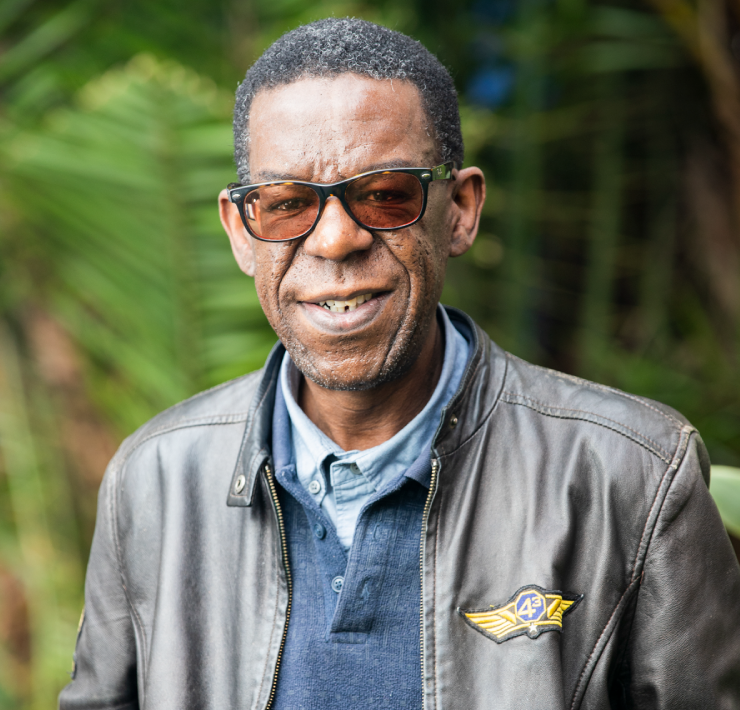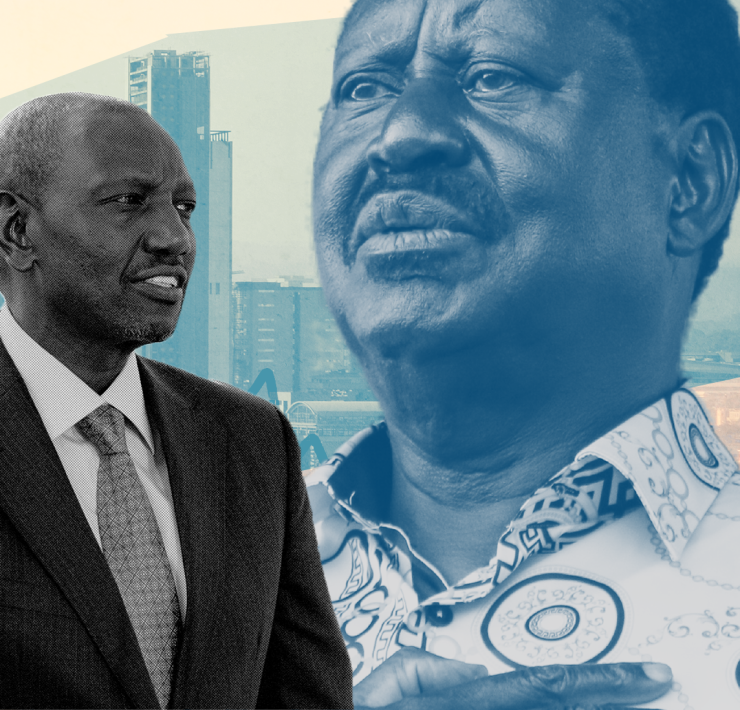Despite what Deputy President Rigathi Gachagua says, the Government of Kenya is not a company with shareholding. But rather, the government is a duty bearer exercising public trust according to law, staffed by people appointed and regulated by national law, and financed by the entire public. This is the short answer to Rigathi Gachagua’s jocular transgression against Article 10 of the Constitution.
I don’t believe that the DP believes what he is saying. I think he’s trolling the opposition in a deliberate strategy to keep it sweating the small stuff and to distract it from what matters. His latest verbal provocation fits a pattern of actions by which Kenya Kwanza has been faithfully supplying a trivial agenda for the Azimio la Umoja One Kenya opposition for five months. Earlier examples might include the nomination of impeached ex-Kiambu Governor Ferdinand Waititu to the proposed Nairobi Rivers Commission and the alleged mystery ship with 10,000 tons of GMO maize that appeared at Mombasa within two months of President William Ruto’s swearing-in. By the way, how did that end?
Kenya Kwanza is legitimately the elected government but it knows that it secured the overt approval of no more than 32 percent of the registered voters. Azimio was not far behind. It got 200,000 votes less than Kenya Kwanza but also represents 31 percent of the registered electorate. A staggering 7.7 million registered voters (37 percent) did not vote on 9 August 2022. Census data indicates that the voter roll should grow by 1 million voters a year, but in the last cycle instead of 5 million new voters, the Independent Electoral and Boundaries Commission (IEBC) only registered 2.4 million. So add the 2.6 million eligible Kenyans who did not register to vote in 2022 to the 7.7 million who did not vote and we have over 10 million eligible Kenyans who definitely did not elect the Kenya Kwanza government. But, this group of ten million did not vote for Raila Odinga and Martha Karua either.
By the 10 of August 2027, I estimate that there will be 15 million eligible Kenyans who did not vote for Azimio or Kenya Kwanza in 2022. They are the prize.
These are the people who the opposition should be recruiting, and you can’t do this by looking backward at the lost 2022 election. The same advice applies to Kenya Kwanza who will be judged as the incumbent in August 2027 on bread and butter performance criteria, even though it’s a relatively young political movement and definitely lacks personnel depth. Kenya Kwanza has had to accommodate the public policy and administration establishment, and the business oligarchy, which clearly favoured Azimio prior to its rejection at the ballot on 9 August 2022. It is in this light that Kenya Kwanza quietly dropped the transitional justice club it threatened to wield over the Uhuru Kenyatta governing group. But time waits for no one and William Ruto could run out of road without meeting his pledges.
On the flip-side, the Kenyan opposition must get its act together and engage in a genuine evidence-based reflection of why in 2022 Raila Odinga only added 120,000 votes to his 2017 haul and lost an election he was believed to have in the bag. Failure to do this and the 2027 contest will be a washout for Raila’s tendency in Kenyan politics.
As things stand, rather than reconstituting its leadership, the opposition has resorted to selling fear. Fear that William Ruto is taking us back to the KANU dictatorship. This is a poor substitute for working on a new agenda ahead of the next election. If you waste time rear-view-mirror-gazing, there will be at least 15 million voters who have no reason to give you a chance to run our government. This cohort wants to hear about more than the past exploits and credentials of the ageing generals of the second liberation of the 1990s who dominate the opposition. At the end of the day, KANU has not been the governing party for two decades, and is frankly irrelevant to the new generation.
In my opinion, Azimio needs to use the four-and-a-half years left and the 7.5 billion shillings gifted to it through the Political Party Fund Act to establish a plausible position it can sell to a millennial electorate that is impervious to the tried and tested “where were you when we were in the streets and law courts?” argument that Raila Odinga and Martha Karua have resorted to.
These young voters have access to Google and know that a great number of Raila’s allies were reluctant supporters of political pluralism – to wit, Uhuru Kenyatta, Gideon Moi and Kalonzo Musyoka. Luckily for them, the new voter does not appear to care which side one was on in the past because they have been acculturated to accept that all players in our politics are devoid of principle. They have become amoral.
It was always Hobson’s choice, but the voters chose the Ruto Hustler narrative of a neo-liberal economic and political re-ordering of the governing group. They heard but did not choose the Raila-Karua stability and continuity narrative of a safe pair of hands. It did not help that Raila-Karua were endorsed by a detested status quo that, in spite of its now acknowledged mismanagement, arrogantly called William Ruto’s coalition Kenya Kwisha (Finished) and a demolition squad. But the margin of defeat was small and Ruto is not invulnerable to challenge. He has made a lot of pledges, but the results of his policy cannot be fairly or reasonably judged for at least a year yet. Assuredly, he will be judged, so in the interim, nuts-and-bolts work must be done on the opposition machine.
The resources for party and ideological development are already available to the political opposition through the Political Party Fund. All that’s needed is serious people with the discipline to do the hard work of community organising and persuading the people that party membership and voting for quality leaders is in their best interests.
Oh, and a new leadership.
Author
-
Mwalimu Mati is a Kenyan lawyer and governance consultant with over 25 years of work experience in the fields of economic governance, anti-corruption, research, advocacy and publication. Mati was the Chief Executive Officer of Mars Group Kenya, one of Kenya’s leading anti-corruption and fiscal transparency watchdogs, as well as publisher of www.marsgroupkenya.org, in its time Kenya’s largest governance web portal which specialised in anti-corruption and financial analysis. Previously, Mati was Executive Director of Transparency International (2006-2007), before which role he served the same organization as Deputy Executive Director (2002-2006). Mati cut his teeth in the 90s working as Programme Officer at the Public Law Institute, where he worked for close to a decade. Driven by his life-mission which is to empower citizens to demand accountability by sharing knowledge, Mati has been at the forefront in the provision of information resources of all forms and shapes to the public as he seeks to promote transparency in public and corporate sectors. Mati consults for Kenyan and international corporations and development agencies in strategy development, programme review and analysis, due diligence background checks and his specialist field of governance and anti-corruption. Mati is widely published locally and internationally, and has led in the writing and publication of some of Kenya’s most ground breaking governance and anti-corruption reports
Mwalimu Mati is a Kenyan lawyer and governance consultant with over 25 years of work experience in the fields of economic governance, anti-corruption, research, advocacy and publication. Mati was the Chief Executive Officer of Mars Group Kenya, one of Kenya’s leading anti-corruption and fiscal transparency watchdogs, as well as publisher of www.marsgroupkenya.org, in its time Kenya’s largest governance web portal which specialised in anti-corruption and financial analysis. Previously, Mati was Executive Director of Transparency International (2006-2007), before which role he served the same organization as Deputy Executive Director (2002-2006). Mati cut his teeth in the 90s working as Programme Officer at the Public Law Institute, where he worked for close to a decade. Driven by his life-mission which is to empower citizens to demand accountability by sharing knowledge, Mati has been at the forefront in the provision of information resources of all forms and shapes to the public as he seeks to promote transparency in public and corporate sectors. Mati consults for Kenyan and international corporations and development agencies in strategy development, programme review and analysis, due diligence background checks and his specialist field of governance and anti-corruption. Mati is widely published locally and internationally, and has led in the writing and publication of some of Kenya’s most ground breaking governance and anti-corruption reports







